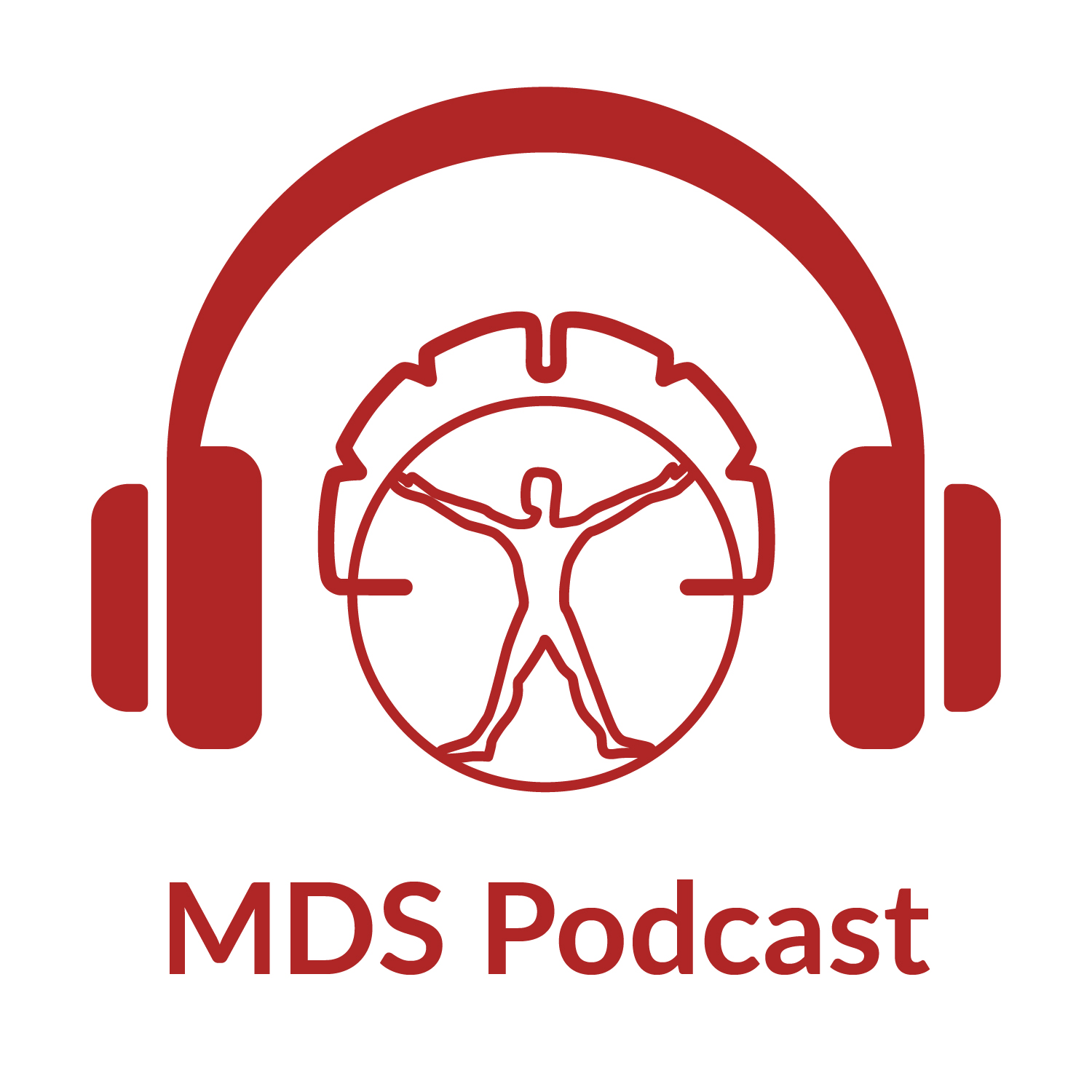

MDS Podcast
International Parkinson and Movement Disorder Society
Stay up to date on novel, clinically-relevant research findings in Parkinson's disease and other movement disorders. Each episode of the International Parkinson and Movement Disorder Society podcast discusses a relevant development in the field, including highlighted journal articles and interviews with the authors.
Episodes
Mentioned books

Feb 9, 2026 • 0sec
CSF proenkephalin as a biomarker for premotor Huntington's disease
Dr. Mena Farag joins Dr. Eduardo de Pablo-Fernández to discuss how proenkephalin and other biomarkers can help monitor the earliest stages of Huntington's disease decades before the onset of motor symptoms.
Read the article.

Feb 2, 2026 • 0sec
Shame in Parkinson's disease: An unseen burden
This episode explores shame as an often-overlooked but impactful non-motor symptom of Parkinson’s disease. Drawing on her team's recent research, Dr. Vanessa Fleury discusses the psychological and clinical determinants of shame, its strong link to quality of life, and why it deserves greater attention in routine care. The conversation highlights how recognizing and addressing shame may open new avenues for more holistic, patient-centered management.
Read the article.

Jan 26, 2026 • 0sec
Pregnancy and Parkinson’s disease: Navigating care before, during, and after
In this episode, Dr. Alexander Lehn explores the clinical management of Parkinson’s disease across the reproductive journey; before conception, during pregnancy, and in the postpartum period. He shares the current evidence, practical challenges, medication safety considerations, and multidisciplinary decision-making. The conversation highlights gaps in data, real-world clinical strategies, and key counseling points to support optimal outcomes for both the parent and child.
Read the article.

Jan 19, 2026 • 0sec
Effects of a probiotic on Parkinson's disease symptoms
Dr. Sara Schaefer is joined by Dr. Valentina Leta and Dr. Ray Chaudhuri to discuss their randomized controlled trial on the effects of probiotic use on inflammation, motor, and non-motor symptoms in Parkinson's disease.
Journal CME is available until December 18, 2026
Read the article.

Jan 12, 2026 • 0sec
History of Movement Disorders: Jean-Martin Charcot
In another installment of the ongoing History Series, Dr. Christopher Goetz joins Dr. Sara Schaefer to discuss the legacy of Jean-Martin Charcot within the fields of medicine medicine, neurology, medical education, and movement disorders.

Dec 22, 2025 • 0sec
Hot Topic: Integrating palliative care into routine care for patients with movement disorders
Dr. Sarah Camargos continues her conversation on palliative in movement disorders by interviewing Mr. Victor McConvey. Together they discuss the current state of palliative care in movement disorders including current barriers, challenges, and future goals.

Dec 15, 2025 • 0sec
Waveform-based analysis of head tremor using a marker-less tracking algorithm with 2D-video
Differentiating a dystonic head tremor from a head tremor in essential tremor can sometimes be diagnostically challenging. In this episode, Dr. Mitra Afshari interviews Dr. Jung Hwan Shin and Prof. Beomseok Jeon on their investigation into the rhythmicity and sinusoidality of head tremors in cervical dystonia versus essential tremor using simple 2D video recordings. We’ll hear about how their findings fit their original hypotheses and potential future work that the group has been brainstorming.
Journal CME is available until November 26, 2026
Read the article.

Dec 8, 2025 • 0sec
A lifetime of experiences and learnings - MDS 40th Anniversary
To celebrate the 40th Anniversary of the MDS, Dr. Michele Matarazzo sits down with two key leaders of the MDS Pan-American section, Dr. Cynthia Comella and Dr. Oscar Gershanik. Together they discuss how they got involved in the society, what they are most proud of, and what the Society means to them, both professionally and personally.

Dec 8, 2025 • 0sec
Collegiality and friendship - MDS 40th Anniversary
To celebrate the 40th Anniversay of the MDS, Dr. Michele Matarazzo sits down with two key leaders of the MDS Asian Oceanian section, Prof. Carolyn Sue and Prof. Beomseok Jeon. Together they discuss the early years of movement disorder “rock stars”, how the society has changed through their eyes, and impacts it has had on their careers.

Dec 1, 2025 • 0sec
Promoting diversity and access to care and education - MDS 40th Anniversary
To celebrate the 40th Anniversay of the MDS, Dr. Sara Schaefer sits down with two key leaders of the MDS African Regional section, Dr. Njideka Okubadejo and Dr. Jonathan Carr. Together they discuss their experiences within MDS and what makes them proud to be long-standing members.


